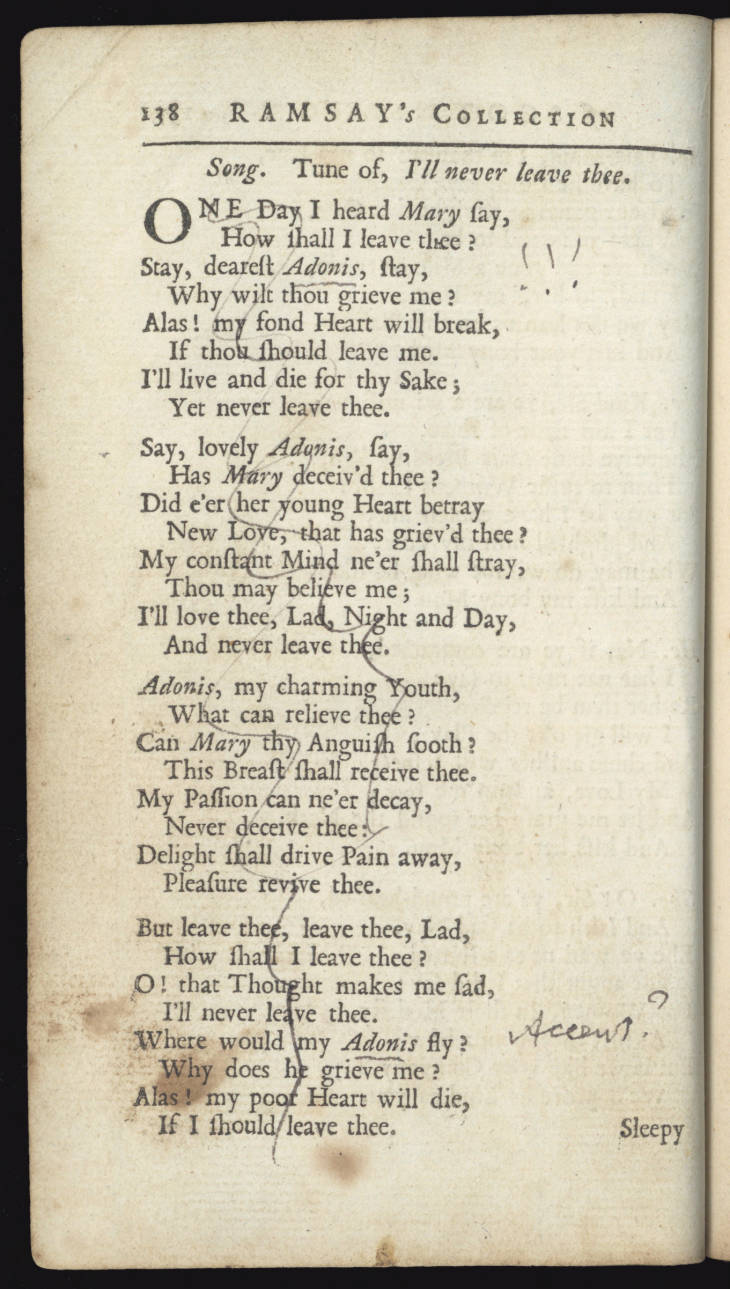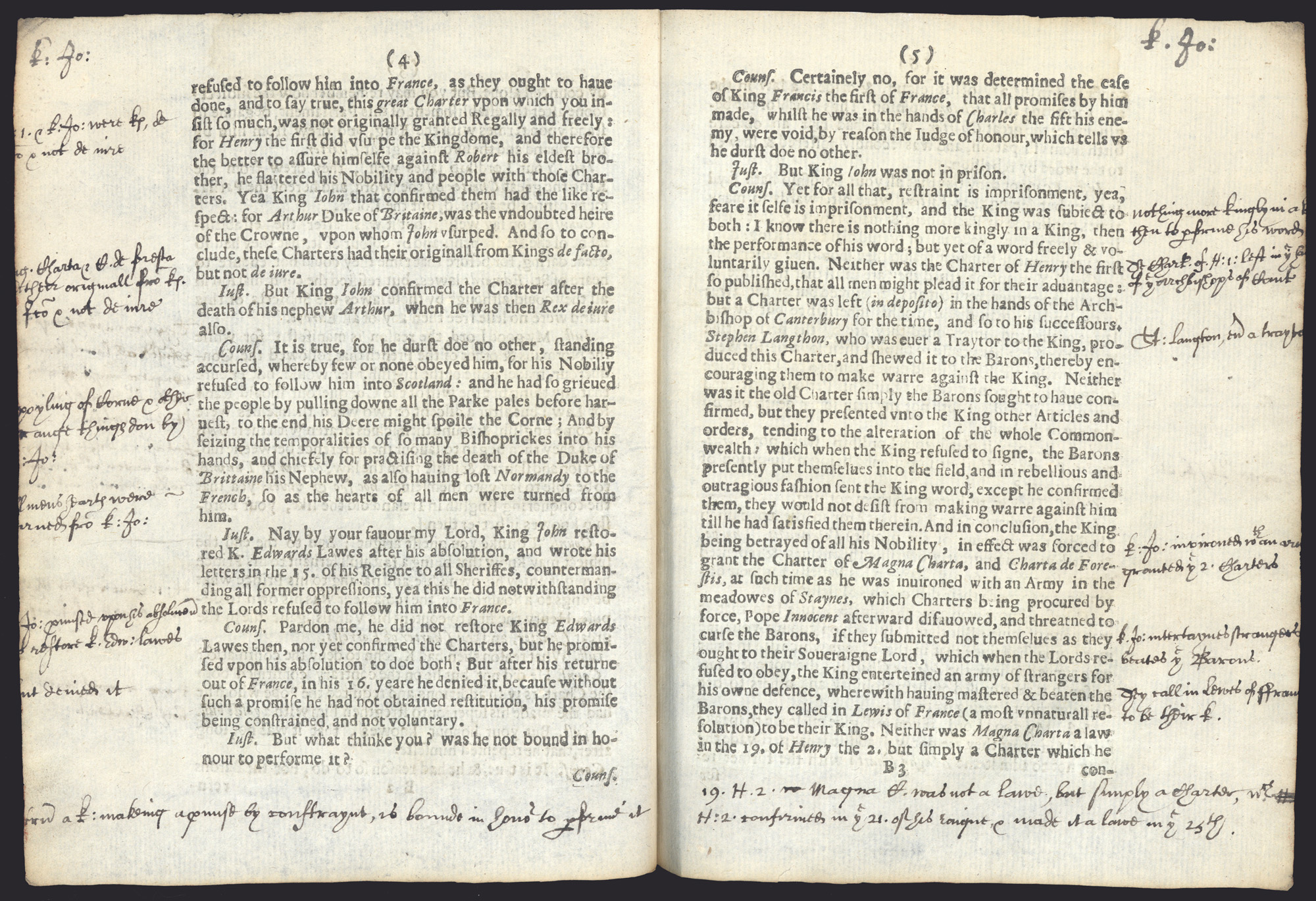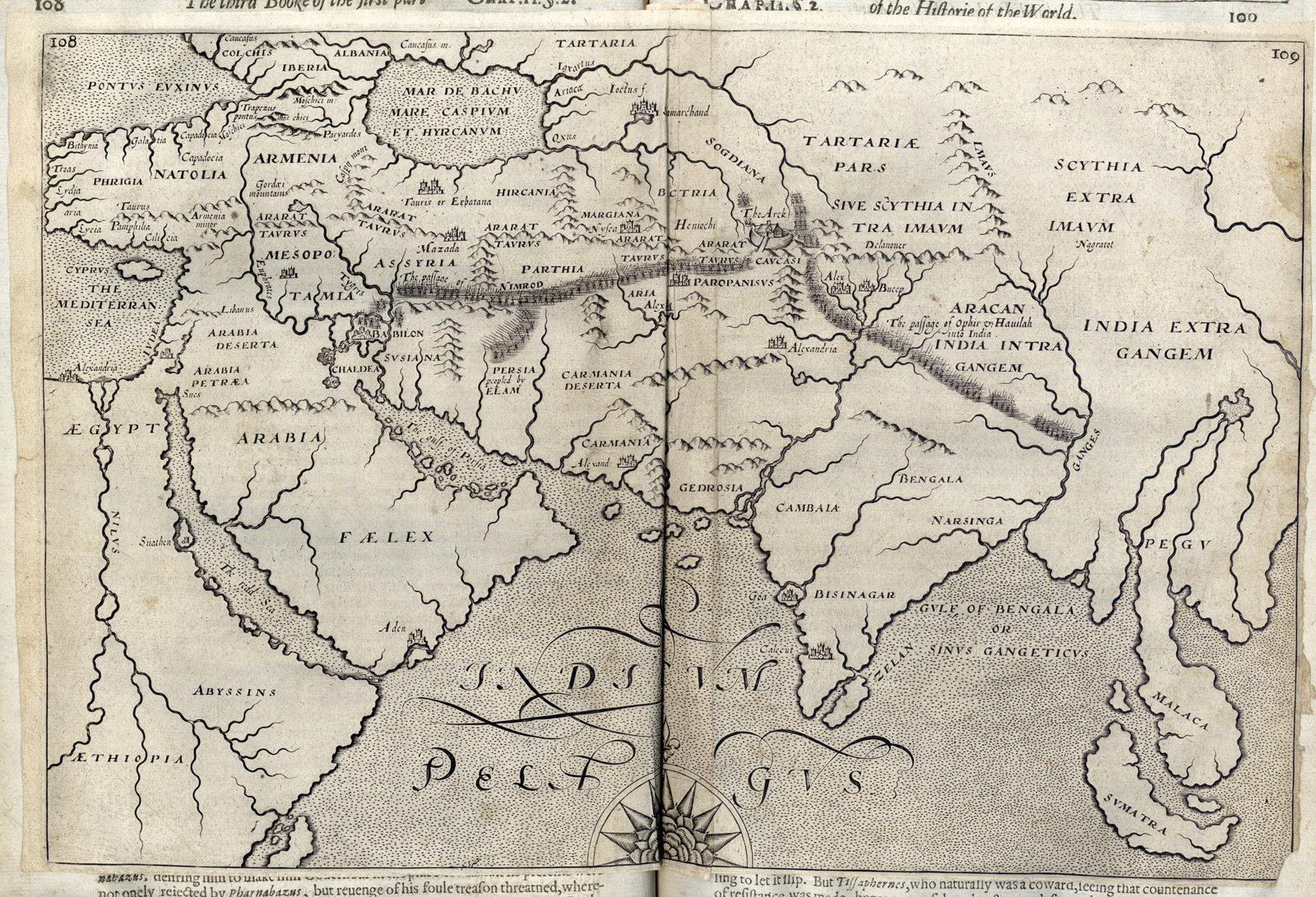February 8th 2019 marks 200 years since the birth of art critic and social thinker John Ruskin (1819-1900).
In our collections, substantial letters from Ruskin appear in the Trevelyan (Walter Calverley) Archive (WCT). Sir Walter was a naturalist and landlord of both the Nettlecombe and Wallington estates. Ruskin’s link to Sir Walter came through a close friendship with his wife Paulina Trevelyan (Pauline). It is to Pauline that the majority of the letters from Ruskin are addressed.
The correspondence from Ruskin in the WCT Archive reflect the friendship between Trevelyan and Ruskin. He advises her on her own artistic practice, reflects on his own work as well as discussing art, society and family matters. In his autobiography, Ruskin described Trevelyan as ‘a monitress-friend in whom I totally trusted’. This trust appears to have been returned, as Trevelyan was one of the few to stand by Ruskin during the collapse and annulment of his marriage.
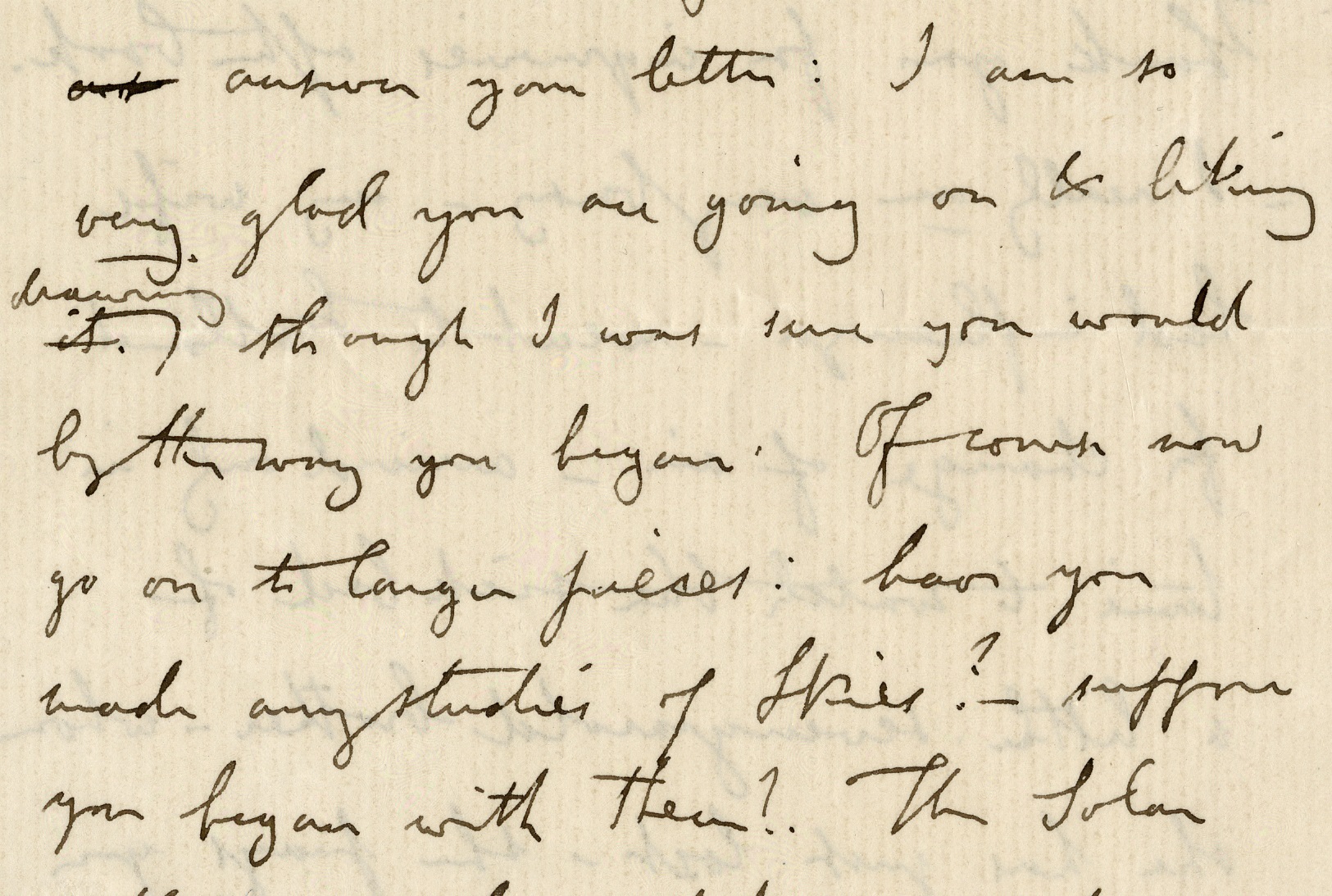
Extract from a letter from John Ruskin to Lady Pauline, advising her on her own artistic practice (Walter Calverley Archive, WCT 39)
Both Trevelyan and Ruskin were supporters of the burgeoning Pre-Raphaelite movement. Trevelyan became an important patron of the movement, using the opportunity presented by roofing the courtyard at Wallington Hall, to showcase the style she enjoyed. The Great Hall at Wallington remains an important artistic monument, featuring eight large wall paintings by William Bell Scott. The floral designs which appear between the main panels were painted by Ruskin and Trevelyan themselves, among other figures from their social circle.
Their friendship came to an end when Trevelyan died in Switzerland, while she and her husband travelled with Ruskin. Both men were present at her death-bed.
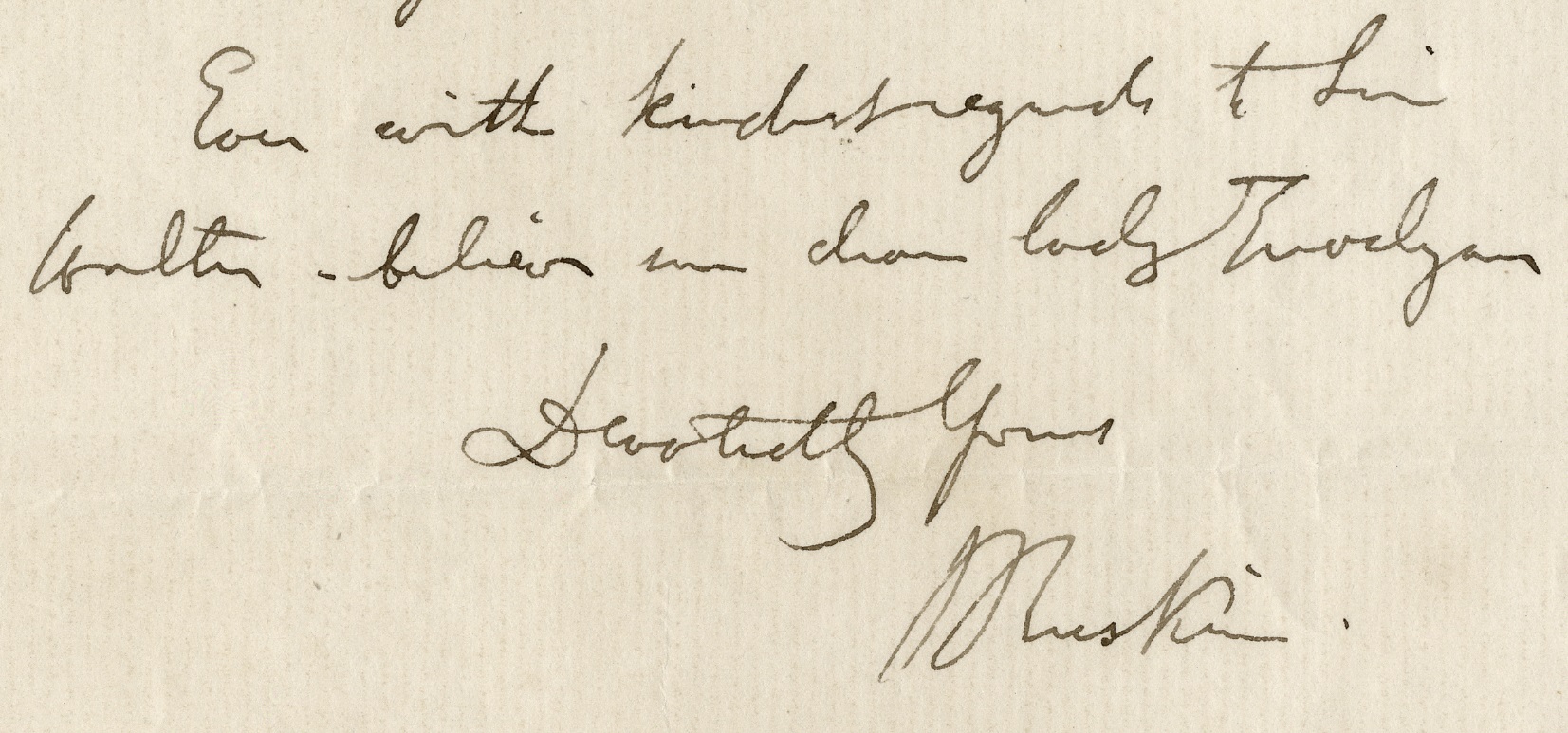
Extract from a letter from John Ruskin to Lady Pauline, which includes his signature (Walter Calverley Trevelyan Archive, WCT 39)
The Trevelyan (Walter Calverley) Archive is available for public consultation and contains around 20 files of letters from Ruskin to Trevelyan, dating from 1848 to Pauline’s death in 1866. Images in this article are from a letter from Ruskin to Trevelyan dated 5th March [1849] which appears in WCT 39. Collections Captured also features images of Ruskin’s personal bookplate and annotations which feature in a book he formerly owned: The tea-table miscellany or, Allan Ramsay’s collection of Scots Sangs (18th Century Collection, 821.04 RAM).

